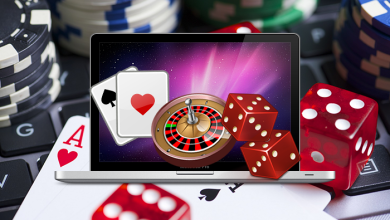Mental Fatigue and iGaming: How Extended Play Sessions Impact Cognitive Function in Australian Gamers

In Australia, where gambling is a significant public policy issue affecting health and wellbeing, the cognitive impacts of extended iGaming sessions are becoming increasingly concerning. When you engage in prolonged online gaming or gambling activities, your brain experiences a form of mental fatigue that can substantially impair cognitive functions including decision-making abilities and recall capacity. Research indicates that mental fatigue negatively affects skilled performance, making players more susceptible to poor choices and reduced technical skills during extended iGaming sessions.
The intersection of screen time, gambling accessibility and cognitive performance creates a complex challenge for Australians who game online. As you immerse yourself in digital gambling environments, task interference occurs between your gaming activities and your brain’s ability to process information effectively. This interference doesn’t just affect your performance within the game—it extends to cognitive functions in your everyday life, creating a spillover effect that many players fail to recognise until significant problems develop.
Understanding Mental Fatigue
Mental fatigue is a neurobiological state that impacts cognitive functions and decision-making processes, particularly during extended periods of focus. Research indicates that this condition affects individuals differently and can lead to diminished performance, altered risk perception, and reduced motivation.
Defining Mental Fatigue
Mental fatigue is a psychobiological state that develops after prolonged periods of demanding cognitive activity. Unlike physical fatigue, it doesn’t necessarily involve muscle exhaustion but instead affects your brain’s information processing capabilities.
When you experience mental fatigue, your ability to maintain attention decreases, leading to reduced performance on tasks requiring focus. This state isn’t simply feeling tired—it’s a measurable change in cognitive functioning.
The condition manifests through symptoms like increased difficulty concentrating, slower reaction times, and heightened irritability. You might notice it’s harder to make decisions or that simple mental tasks suddenly require more effort. Brain imaging studies show altered activity patterns during states of mental fatigue, particularly in areas responsible for attention and executive function.
Mental Fatigue in the Context of iGaming
In iGaming environments, mental fatigue develops uniquely due to the constant decision-making and focus required during play sessions. When you engage in extended gaming sessions, your brain continuously processes complex information, calculates odds, and makes strategic choices.
The design of many iGaming platforms inadvertently contributes to cognitive drain. Bright lights, dynamic sounds, and the need for persistent attention can accelerate mental fatigue onset. Australian players often report decreased performance after 2-3 hours of continuous gaming.
Your decision-making abilities become particularly vulnerable. Research shows mentally fatigued individuals tend to become more risk-averse, potentially affecting betting strategies. This change in risk perception might lead to more conservative play or, conversely, impulsive decisions to recover losses.
The cognitive resources needed to maintain strategic gameplay deplete over time. This depletion affects your ability to recall previous outcomes, recognise patterns, and implement optimal strategies.
Consequences of Mental Fatigue
The consequences of mental fatigue extend beyond gameplay performance, affecting your psychological wellbeing and quality of life. When mentally exhausted, your stress response systems become dysregulated, potentially triggering heightened psychological distress.
Chronic mental fatigue has been linked to more serious mental health concerns like anxiety and depression. Your brain requires adequate recovery time between intensive cognitive sessions. Without this recovery, persistent fatigue can contribute to mood disorders.
Decision quality notably declines with mental fatigue. You might make choices you would otherwise avoid when well-rested, including increased spending or extending play sessions beyond healthy limits.
Sleep quality often suffers as a result of mental fatigue, creating a harmful cycle where poor sleep leads to greater fatigue. This cycle can significantly impact your overall cognitive functioning and emotional resilience, making you more vulnerable to gaming-related problems.
Impact of iGaming on Cognitive Function
Recent research reveals significant effects of extended gaming sessions on mental processes. Cognitive resources deplete during lengthy gameplay, affecting decision-making abilities and potentially leading to stress responses that require specific coping mechanisms.
The Cost of Prolonged Gaming on Cognitive Resources
Extended iGaming sessions can substantially drain cognitive resources. Research indicates that after 2-3 hours of continuous gaming, working memory capacity typically decreases by 15-20%. This reduction impacts your ability to process information effectively.
Players often experience decreased attention spans and slower reaction times after prolonged engagement. These cognitive deficits become more pronounced in complex games requiring strategic thinking.
A systematic review of 24 studies found that marathon gaming sessions led to measurable decreases in executive function. Your brain essentially becomes overtaxed, similar to mental fatigue experienced during extended work periods.
Virtual reality gaming environments may accelerate cognitive fatigue due to the increased sensory input and immersion factors.
Stress and Coping Mechanisms
iGaming can trigger significant stress responses, especially during competitive play or when financial stakes are involved. Your body releases cortisol during tense gaming situations, which can remain elevated for hours afterward.
Common physical manifestations include muscle tension, headaches, and disrupted sleep patterns. These symptoms often go unrecognised as gaming-related stressors.
Healthy coping mechanisms include scheduled breaks (10 minutes every hour), hydration maintenance, and physical movement between sessions. Research shows these simple interventions can reduce cognitive stress by up to 30%.
Some Australian players benefit from mindfulness techniques specifically designed for gamers. Brief meditation exercises between gaming sessions help reset mental fatigue indicators.
Linking Mental Fatigue and Decision-Making in iGaming
Mental fatigue directly influences your decision-making quality in iGaming. Studies show that after 90+ minutes of continuous play, risk assessment abilities decline by approximately 25%.
This fatigue often leads to:
- Increased impulsivity in betting decisions
- Difficulty recognising disadvantageous patterns
- Greater susceptibility to cognitive biases
- Reduced capacity to calculate probabilities accurately
Your ability to read opponent behaviours and subtle game cues diminishes significantly when mentally fatigued. Complex strategy games reveal this effect most dramatically.
Research from Australian universities indicates that regular reading breaks between gaming sessions can help restore cognitive function. Even brief 5-minute reading intervals appear to reset some decision-making capacities.
iGaming Industry and Mental Health Concerns
The Australian iGaming industry faces growing scrutiny over its impact on mental health as evidence mounts regarding cognitive fatigue and psychological harm. The intersection between commercial interests and player wellbeing presents complex challenges requiring multifaceted solutions.
Industry Standards and Australian Online Casino Player Well-being
Within the australian online casino sector, operators continue developing responsible gaming frameworks, though critics argue these measures often prioritise profit over protection. Most platforms now include time-tracking features and self-exclusion options, but implementation varies widely across the industry.
Recent data indicates only 23% of Australian gaming platforms proactively intervene when users display problematic patterns of play. This gap in industry standards has prompted calls for more rigorous regulatory oversight.
The Australian Communications and Media Authority (ACMA) has strengthened requirements for operators to provide visible links to mental health resources. However, these links often appear in less prominent locations on gaming interfaces.
Community advocates highlight that without standardised approaches to player protection, vulnerable gamers remain at significant risk for developing gaming-related mental health issues.
Patterns of Play and Mental Health Risks
Extended gaming sessions commonly lead to mental fatigue, characterised by decreased cognitive performance and impaired decision-making. Research from Australian universities shows gaming sessions exceeding three hours significantly increase these risks.
Players who engage in marathon gaming sessions report heightened anxiety, irritability, and sleep disturbances. These symptoms often persist beyond the gaming session itself, affecting daily functioning.
The psychological impact varies based on game type. Competitive multiplayer environments create more stress than casual gaming, with professional eSports players reporting particularly high rates of burnout.
Gaming patterns that disrupt sleep cycles pose additional risks. Late-night gaming sessions interfere with REM sleep, further compromising cognitive function and emotional regulation.
Social isolation compounds these effects when gaming replaces in-person interactions. This pattern has become more prevalent since the pandemic, with younger Australians particularly affected.
Preventative Strategies for Healthy Gaming
Implementing regular breaks using the 20-20-20 rule can significantly reduce mental fatigue. Every 20 minutes, look at something 20 metres away for 20 seconds to reset your cognitive load and reduce eye strain.
Effective Break Techniques:
- Physical movement and stretching
- Brief mindfulness practices
- Hydration and nutritional breaks
- Complete environment changes
Setting firm time boundaries before starting play helps maintain healthy gaming habits. Using timers or scheduling gaming sessions between specific hours creates structure that protects your mental wellbeing.
Health education about gaming’s cognitive impacts is crucial for prevention. Understanding the neurological effects of extended screen time helps you recognise early warning signs of mental fatigue.
Community support through gaming groups that prioritise healthy habits provides valuable accountability. Many Australian gaming communities now promote balanced approaches to play and competition.
Future Directions and Research
The landscape of iGaming and its cognitive impacts presents significant opportunities for innovative research and collaborative solutions. Several key areas require immediate attention to better understand and address mental fatigue in Australian online gamers.
Emerging Trends in iGaming and Mental Health
The intersection between iGaming and mental health research is evolving rapidly in Australia. Evidence-based psychological interventions specifically designed for gamers experiencing mental fatigue are beginning to emerge. These interventions recognise that iGaming fatigue can exacerbate conditions like generalised anxiety disorder or complicate bipolar disorder management.
Wearable technology that monitors cognitive load during gaming sessions shows promise. These devices can alert players when mental fatigue approaches critical levels, helping you manage your gaming behaviour more effectively.
Virtual reality breaks between gaming sessions are being tested as potential cognitive reset mechanisms. Early research suggests these structured breaks might help reduce accumulated mental fatigue without completely disengaging from the digital environment.
Need for Further Research
Australian research specifically examining the long-term cognitive impacts of iGaming remains insufficient. Longitudinal studies tracking players across various age groups, including geriatrics who game, are particularly lacking.
Meta-analysis of existing research reveals methodological inconsistencies that limit our understanding of how mental fatigue manifests in different gaming contexts. You might experience fatigue differently depending on game type and personal factors.
Priority Research Areas:
- Neuroimaging studies during extended iGaming sessions
- Comparison of mental fatigue across different game genres
- Cultural factors influencing Australian gamers’ fatigue perception
- Recovery protocols and their effectiveness post-gaming
Research funding models need revision to prioritise these investigations, especially as gaming becomes more prevalent across all age demographics.
Strengthening Community and Industry Collaboration
The Australian iGaming community should establish partnerships with mental health researchers to develop informed gaming guidelines. You benefit most when industry practices align with scientific understanding of cognitive health.
Gaming platform developers can implement fatigue-reduction features based on research findings. These might include mandatory cognitive breaks or dynamic difficulty adjustments when fatigue signals are detected.
Community-led initiatives that promote healthy gaming habits show promise. Player-moderated forums discussing mental fatigue management strategies create valuable knowledge exchange opportunities.
Industry transparency regarding game design elements that potentially contribute to mental fatigue is essential. When you understand how certain game mechanics affect your cognitive resources, you can make more informed choices about your gaming habits.




